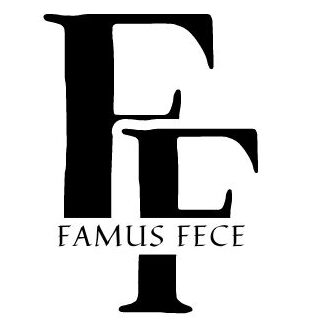Ever looked at your bank statement and seen “MSFX” listed there? It’s normal to wonder what that means. Don’t worry, it’s not some weird code or a mistake. MSFX is just short for “Marks and Spencer Financial Exchange.“
So, what’s that all about? Well, if you’ve used your card to change money at Marks and Spencer, this is how it shows up on your statement. Maybe you were getting ready for a trip and needed some foreign cash. That’s when you might see MSFX pop up.
The charge you see is a fee for changing your money. How much it costs depends on things like how much money you changed, what currency you got, and the exchange rate at the time. It’s just part of the service when you use Marks and Spencer to swap your cash for foreign money.
What is MSFX on my bank statement?
MSFX on your bank statement stands for Marks and Spencer Financial Exchange. It appears when you’ve used Marks and Spencer’s services to exchange currency, like when you’re preparing for a trip abroad.
The MSFX charge is a fee for this currency exchange service. How much you’re charged depends on several factors, including the amount of money you exchanged, the type of currency you got, and the exchange rate at the time of your transaction.
Reas this article: What Is 2211 T San Jose Charge On Credit Card?
How to stop MSFX on bank statements?
To stop seeing MSFX charges on your bank statements, you’ll need to avoid using Marks and Spencer’s currency exchange services. This might mean finding alternative ways to get foreign currency or using different financial services when traveling.
You could consider using banks or exchange services with lower fees, or look into credit cards that don’t charge foreign transaction fees. Remember, the goal is to find the most cost-effective way to handle your money when dealing with foreign currencies.
Use Local Currency Accounts
One smart way to avoid currency exchange fees is to use local currency accounts. This means opening a bank account that holds money in the foreign currency you often use. It’s especially helpful if you frequently travel to the same country or regularly deal with a specific foreign currency.
Choose Cards with No Foreign Transaction Fees

When traveling abroad or making purchases in foreign currencies, using a credit card with no foreign transaction fees can save you money. Many banks and credit card companies offer cards specifically designed for international use.
These cards don’t charge extra fees when you use them outside your home country or for purchases in foreign currencies. By choosing one of these cards, you can avoid the additional charges that typically come with currency conversion, potentially saving you a significant amount on your international spending.
You may want to read: What Is AAA ACG NE0069 EFT RCC?
Use ATMs Wisely
When you need cash in a foreign country, using ATMs can be convenient, but it’s important to be strategic. Try to withdraw larger amounts less frequently to minimize per-transaction fees. Look for ATMs affiliated with your bank or part of a global network your bank belongs to, as these often have lower or no fees.
Avoid using ATMs in tourist hotspots or airports, as these typically charge higher fees. Also, when prompted, choose to be charged in the local currency rather than your home currency to avoid unfavorable exchange rates set by the ATM operator.
Research Banks and Payment Services

Before traveling or making international transactions, it’s worth taking some time to research different banks and payment services. Some institutions offer more favorable terms for international transactions, such as lower exchange rates or reduced fees.
Compare the offerings of various banks, online money transfer services, and digital payment platforms. Look for those that specialize in international transactions or cater to frequent travelers. Pay attention to their exchange rates, fee structures, and any additional perks they might offer for foreign currency transactions.
By doing this research, you can find the most cost-effective option for your specific needs, potentially saving a significant amount on fees and exchange rates in the long run.
Recommended article: What Is The PREP BLAST Charge On My Bank Statement?
How MSFX charges appear on a bank statement
MSFX charges typically appear on your bank statement as a separate line item, clearly labeled as “MSFX” or “Marks and Spencer Financial Exchange.” The entry will include the date of the transaction, the amount of the fee in your local currency, and sometimes a brief description of the service provided (e.g., “Currency Exchange”).
The fee amount will vary depending on the specifics of your transaction, such as the amount of currency exchanged and the current exchange rate. It’s important to note that this charge is in addition to the actual amount of foreign currency you received, so you may see two related entries: one for the currency exchange itself and another for the MSFX fee.
As for MSFX codes, the document doesn’t provide specific codes. However, based on common practices in financial transactions, here are some hypothetical examples of how MSFX might appear with codes on a statement:
- MSFX-FX001: Currency Exchange Fee
- MSFX-TR002: Travel Money Service
- MSFX-CN003: Commission Charge
- MSFX-RT004: Real-Time Exchange Fee
- MSFX-INT005: International Transfer Fee
Short note on MSFX charges on a bank statement

MSFX charges on your bank statement indicate that you’ve used Marks and Spencer’s Financial Exchange services for currency conversion. These charges represent the fees associated with exchanging your money into foreign currency, often in preparation for international travel.
The amount of the fee varies based on factors such as the sum exchanged, the type of currency obtained, and the prevailing exchange rate at the time of the transaction. When you see an MSFX entry on your statement, it’s a separate line item from the actual currency exchange amount, reflecting the cost of using this service.
To avoid these charges in the future, consider alternative methods for obtaining foreign currency or using financial products designed for international transactions with lower or no fees.
FAQ’s
What does MSFX stand for on my bank statement?
MSFX stands for Marks and Spencer Financial Exchange. It appears when you’ve used Marks and Spencer’s services to exchange currency, typically for international travel.
How can I avoid MSFX charges?
To avoid MSFX charges, use alternative currency exchange services or credit cards without foreign transaction fees. You could also consider opening local currency accounts if you frequently deal with a specific foreign currency.
Are MSFX charges the same as the amount of currency I exchanged?
No, MSFX charges are separate from the amount of currency you exchanged. They represent the fee for using Marks and Spencer’s currency exchange service, in addition to the actual amount of foreign currency you received.
Can I dispute MSFX charges on my bank statement?
Generally, you cannot dispute legitimate MSFX charges if you used Marks and Spencer’s currency exchange services. However, if you believe there’s an error in the amount charged, you should contact Marks and Spencer’s customer service for clarification or correction.
Final Thoughts
Understanding MSFX charges on your bank statement is crucial for managing your finances, especially when preparing for international travel or dealing with foreign currencies. While Marks and Spencer Financial Exchange provides a convenient service for currency conversion, being aware of these charges allows you to make informed decisions about how to handle your money abroad.
By exploring alternatives such as cards with no foreign transaction fees, local currency accounts, or strategic use of ATMs, you can potentially reduce or eliminate these extra costs. Ultimately, the key is to research and compare different options, considering your specific travel needs and financial habits, to find the most cost-effective solution for your foreign currency transactions.

Experienced website administrator Specializing in general topics. Skilled in managing content, Optimizing User Experience, and ensuring site functionality. Dedicated to Delivering Quality and Engaging online experiences for Visitors.












